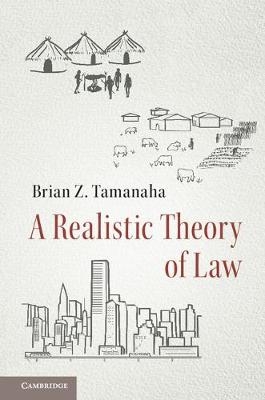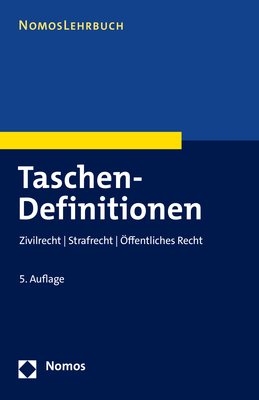
A Realistic Theory of Law
Seiten
2017
Cambridge University Press (Verlag)
978-1-107-18842-6 (ISBN)
Cambridge University Press (Verlag)
978-1-107-18842-6 (ISBN)
This book is for legal theorists and social scientists interested in a theory of law as a social institution that changes in form and function over time and place, in connection with social, cultural, economic, political, ecological, and technological factors. The realistic theory presents a holistic vision of law within society.
This book articulates an empirically grounded theory of law applicable throughout history and across different societies. Unlike natural law theory or analytical jurisprudence, which are narrow, abstract, ahistorical, and detached from society, Tamanaha's theory presents a holistic vision of law within society, evolving in connection with social, cultural, economic, political, ecological, and technological factors. He revives a largely forgotten theoretical perspective on law that runs from Montesquieu through the legal realists to the present. This book explains why the classic question 'what is law?' has never been resolved, and casts doubt on theorists' claims about necessary and universal truths about law. This book develops a theory of law as a social institution with varying forms and functions, tracing law from hunter-gatherer societies to the modern state and beyond. Tamanaha's theory accounts for social influences on law, legal influences on society, law and domination, multifunctional governmental uses of law, legal pluralism, international law, and other legal aspects largely overlooked in jurisprudence.
This book articulates an empirically grounded theory of law applicable throughout history and across different societies. Unlike natural law theory or analytical jurisprudence, which are narrow, abstract, ahistorical, and detached from society, Tamanaha's theory presents a holistic vision of law within society, evolving in connection with social, cultural, economic, political, ecological, and technological factors. He revives a largely forgotten theoretical perspective on law that runs from Montesquieu through the legal realists to the present. This book explains why the classic question 'what is law?' has never been resolved, and casts doubt on theorists' claims about necessary and universal truths about law. This book develops a theory of law as a social institution with varying forms and functions, tracing law from hunter-gatherer societies to the modern state and beyond. Tamanaha's theory accounts for social influences on law, legal influences on society, law and domination, multifunctional governmental uses of law, legal pluralism, international law, and other legal aspects largely overlooked in jurisprudence.
Brian Tamanaha is William Gardiner Hammond Professor of Law at Washington University, St Louis School of Law. He is the author of eight books, including the prize-winning A General Jurisprudence of Law and Society (2001).
Introduction; 1. The third branch of jurisprudence; 2. What is law?; 3. Necessary and universal truths about law?; 4. A genealogical view of law; 5. Law in the age of organizations; 6. What is international law?; Conclusion: a realistic theory of law.
| Erscheinungsdatum | 09.06.2017 |
|---|---|
| Zusatzinfo | Worked examples or Exercises |
| Verlagsort | Cambridge |
| Sprache | englisch |
| Maße | 156 x 235 mm |
| Gewicht | 440 g |
| Themenwelt | Recht / Steuern ► Allgemeines / Lexika |
| Recht / Steuern ► EU / Internationales Recht | |
| ISBN-10 | 1-107-18842-3 / 1107188423 |
| ISBN-13 | 978-1-107-18842-6 / 9781107188426 |
| Zustand | Neuware |
| Haben Sie eine Frage zum Produkt? |
Mehr entdecken
aus dem Bereich
aus dem Bereich
Zivilrecht | Strafrecht | Öffentliches Recht
Buch | Softcover (2022)
Nomos (Verlag)
19,90 €


